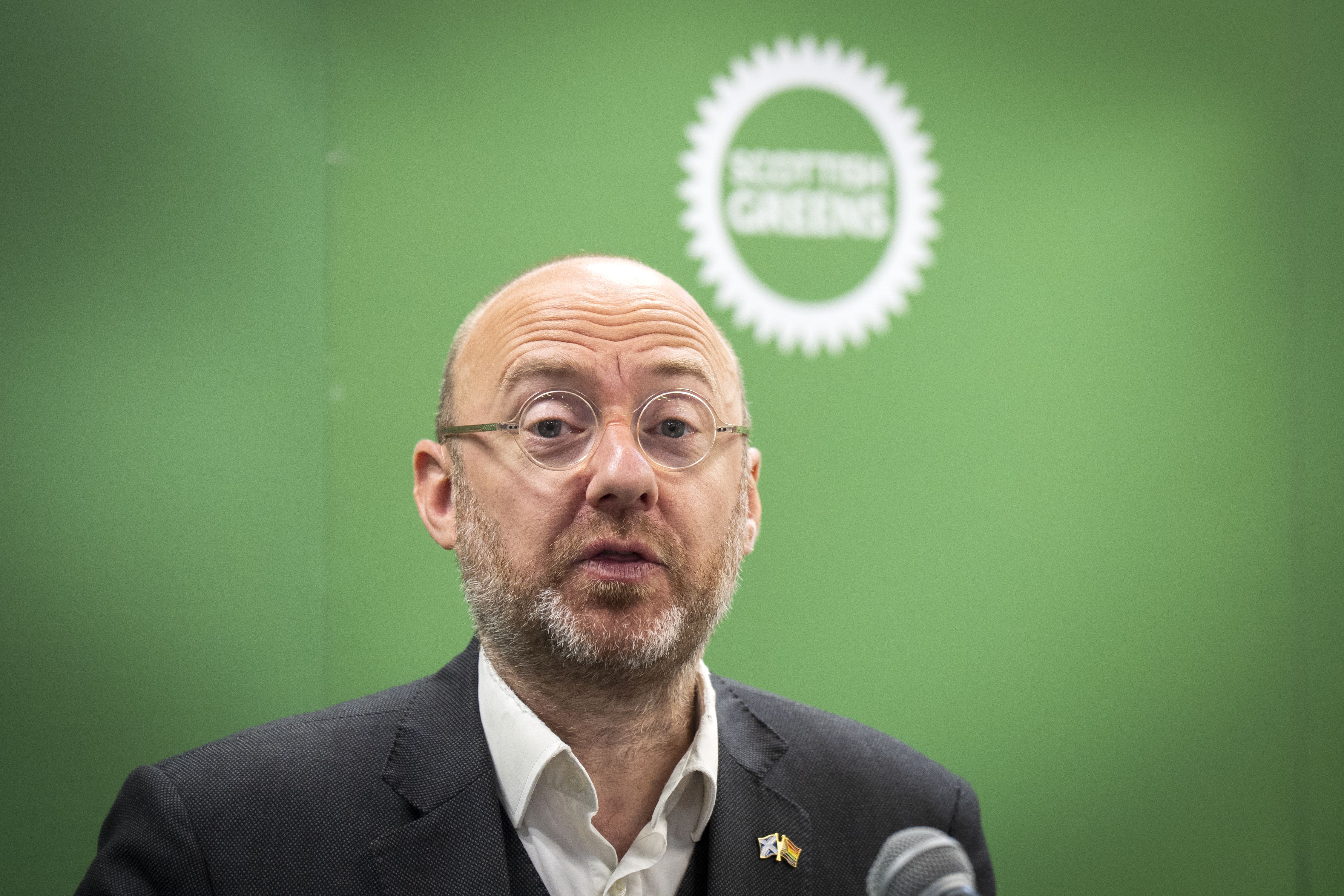Harvie questions SNP’s election strategy for route to independence vote
The Scottish Greens co-leader said he does not think a majority of seats won under first-past-the-post would count as a mandate.

Scottish Greens co-leader Patrick Harvie has questioned the process of using a majority of seats at Westminster as a mandate for independence.
It is the method proposed by the SNP, with the party’s leader John Swinney pledging the result would give “democratic effect” to independence talks.
But speaking after the Greens launched their General Election manifesto on Thursday, Mr Harvie said his party instead wants the power to hold constitutional referendums to be devolved to Holyrood.
The UK Supreme Court ruled in 2022 that the Scottish Parliament does not have the power to hold a second independence referendum without Westminster’s approval.
What I don’t think any political party can claim a mandate for is for the right of the UK Parliament to decide the timing of a future decision on Scottish independence
Mr Harvie said he is not convinced the Westminster electoral system – which uses first-past-the-post rather than a proportional representation method to decide results – could “genuinely” count as a mandate.
It was put to him that Labour could use the election as a mandate not to hold a referendum if it wins a majority of seats in Scotland – similar to the SNP’s approach.
Mr Harvie said: “I question whether a majority of seats under first-past-the-post genuinely reflects a mandate.
“If they were to win 50% of the votes in Scotland, you would have to respect that, you would have to recognise that that was the way the majority of people in Scotland, the majority people choosing to cast their vote.
“I don’t think that’s likely to happen, but if any political party was to get that level of 50%-plus support, other parties would have to respect that.
“But what I don’t think any political party can claim a mandate for is for the right of the UK Parliament to decide the timing of a future decision on Scottish independence because only 10% of the MPs in the UK Parliament have any mandate at all coming from Scotland.
“It has to be for Scottish voters to be able to determine that decision for themselves, not that decision being made in Whitehall for them.”
However, he agreed with Mr Swinney that the Scottish Parliament already secured a mandate in 2021 when pro-independence parties won a majority of seats.
Mr Harvie also said he is “very confident” support for independence will grow beyond the current levels if there is a “clear period of campaigning”.
In polls, independence support has fluctuated above and below the 50% mark.
Tommy Sheppard, the SNP candidate for Edinburgh East and Musselburgh, said: “There already is a mandate for independence – in 2021 the people of Scotland voted for a pro-independence majority Scottish Parliament in support of another independence referendum, yet this right has been denied by Westminster parties who do not respect Scotland’s democratic voice.
“We have been resolutely clear – as was published on line one, page one of our manifesto – that a vote for the SNP in the General Election will be a vote for Scotland to be independent.
“If we succeed in securing a majority of Scotland’s seats, we will enter negotiations with the UK government to implement the right of the Scottish people to choose our own future.”
Bookmark popover
Removed from bookmarks